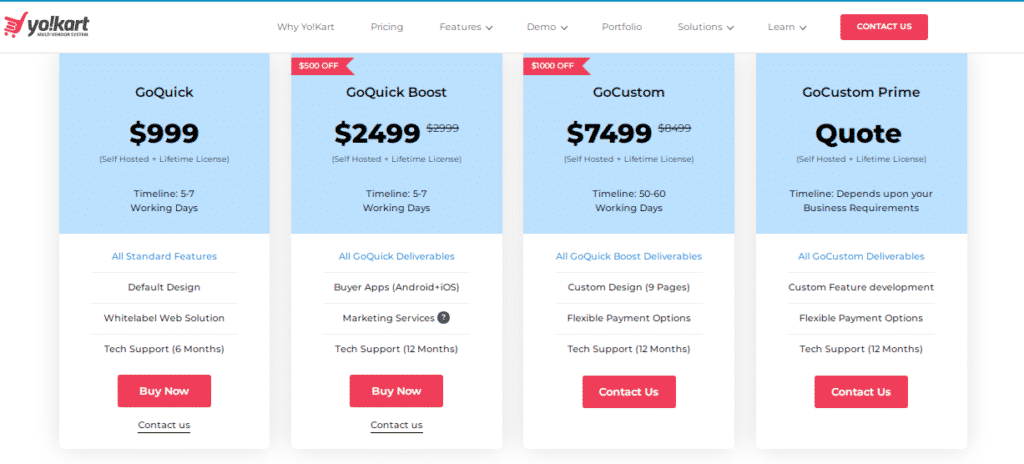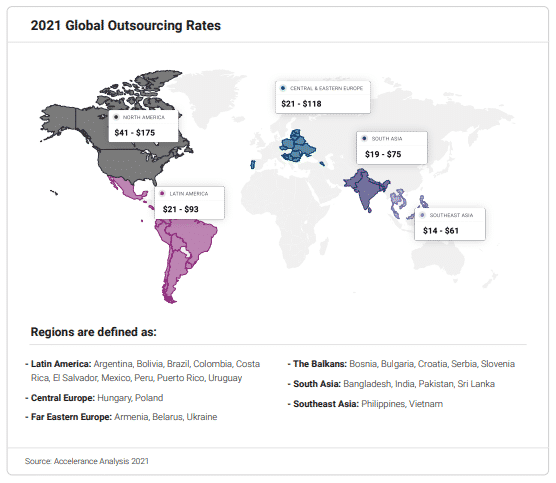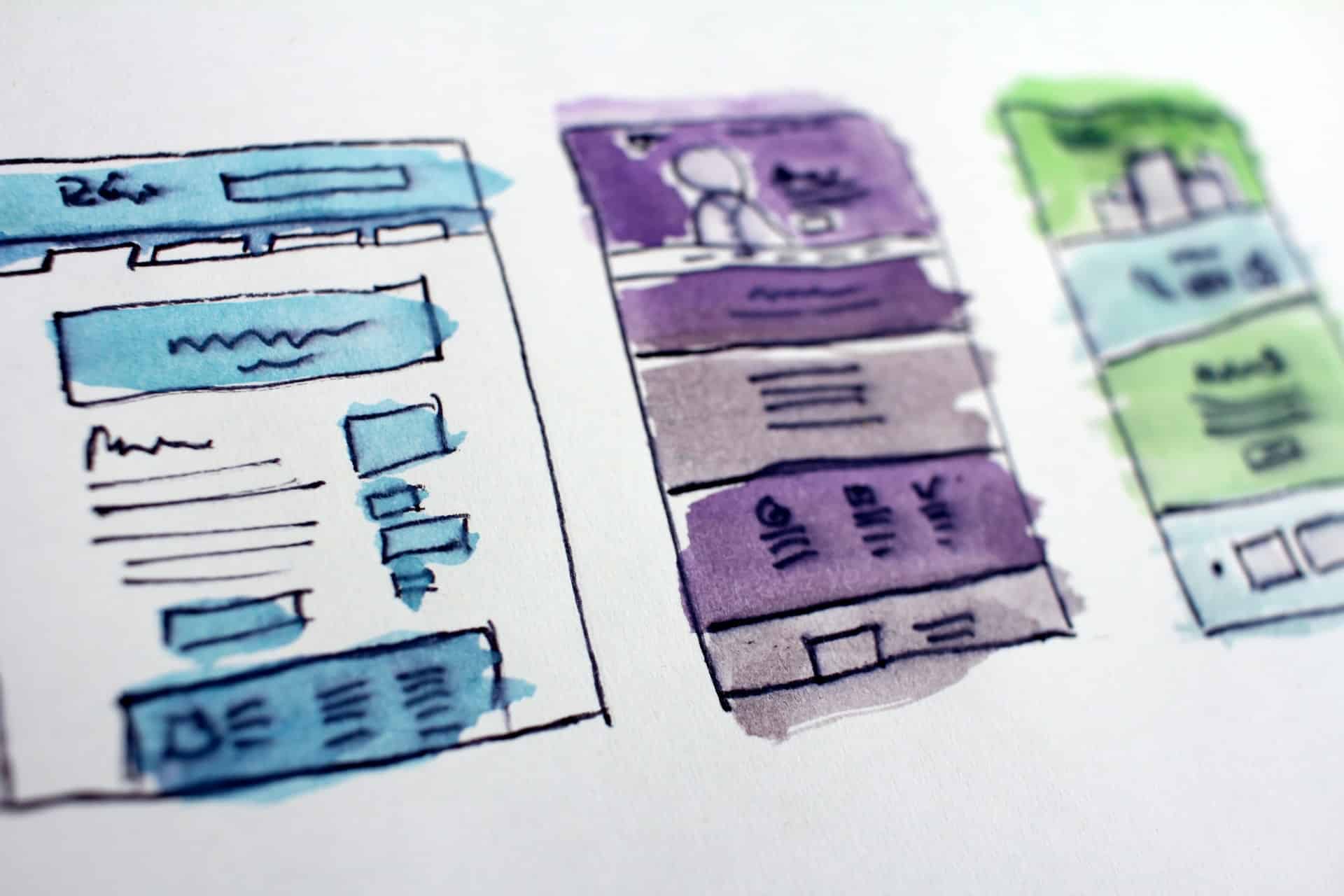What does a typical website cost to build? After all, a website is a major doorway for prospects to learn more about you online. Whether you sell products or offer services, the online web presence allows you to reach a wider audience. So, thanks to web development, your business has opportunities to grow.
Many factors influence the final price of creating your website. Choosing between various options is a challenging deal. So, it is helpful to know what is included in the website development costs. Let’s find out.
Table of Contents
Choosing the development approach
There are two major options for your website development: ready-made or custom solutions. Let’s discover their benefits and bottlenecks.
Out-of-the-box software
This approach is cheaper and faster. There are such popular platforms as Sharetribe, Yo!Kart, or Shopify. Thanks to extensive functionality, they allow starting an online marketplace in a matter of days.
However, the price of a website built with ready-made solutions varies considerably. While Shopify suggests plans ranging from $29 to 299 per month, Yo!Kart suggests pricing that reaches $7499 for a solution. The more sophisticated solution you need, the higher the price is.

With undeniable advantages, drawbacks also come. For example, when the business grows, you may need more features unavailable in ready-made products.
Also, using pre-built software requires additional costs in the long run. You need to hire specialists for installation. Continuous upgrades also require additional costs. Not to mention the hardware that ensures stable operation.
Summing up, the pre-built software suits small businesses that do not require custom features. If you need unique business logic, you better opt for a custom solution.
Custom software development
It is a more expensive and time-consuming process. However, If you want to launch a website that is user-oriented to the maximum degree, you definitely should consider this option.
There are several options for providers of tailored software development, namely:
- In-house development team;
- Freelance providers;
- Software development agency.
The essential benefit of the last option is that such companies are proficient in delivering solutions like yours. So, you can be sure that you get a high-quality product, as such a team will apply their accumulated experience.
How can you learn if your supplier is skillful? You can take into account their delivered projects and testimonials from former clients.
Experienced providers charge more for their services. But the quality of your website is not the case for saving costs. So, you’ll win by hiring a qualified supplier.
Also, the rates of creating a website depend on the provider’s location. If you turn to a company working in the US, the hourly rate may reach around $100, according to PayScale.
Meanwhile, the rates in Eastern Europe are lower. For instance, Ukrainian developers charge $35-60 per hour.
Below you can see developers’ regional hourly rates globally, given by Accelerance.

Therefore, the cost to build a website mainly depends on the development approach you choose, and the type of website you want to build.
To give you some numbers, creating a landing page can cost about $700, and a custom SaaS platform cost can start from $70,000.
Now let’s see what are the steps for creating a custom website for your business.
How to build a website from scratch
1. Choose the technology stack
The technology stack is essential for building user-friendly websites. Choose a tech stack with proven efficiency over time. Such technologies will help you build an efficient and stable website.
Also, technological tools influence the time for building your product. The technologies should allow you to create your website quickly and launch it as early as possible. This helps you save costs.
We would recommend taking a look at the following technology stack for a website:
- Frontend: HTML5, CSS3, JavaScript, React, Vue.js;
- Backend: Ruby, Ruby on Rails, ElasticSearch, Redis;
- Additional technologies: AWS, PostgreSQL, RSpec.
2. Select the required features
There are many websites: e-commerce, web portals, blogging sites, and more. All of them have their specifics and, accordingly, particular features.
Let’s take a look at a particular example. Airbnb, a platform for renting out real estate, has a feature set required for two parties using the website: travelers and hosts. The functionality is set to facilitate communication between them. Also, there are features for payment transactions.
See below the most essential functions for each side on Airbnb.
Travelers
- Add and edit profile details
- Use search and filtering options to find properties
- Get apartment details
- Booking and wishlist
- Use integrated messenger to contact a host
- View upcoming/past bookings and reservations details
- Receive push notifications
- Submit reviews
- Add/delete payment methods and see transaction history.
Hosts
- List property
- Wizard listing
- Set the pricing and availability
- Set the payment details
- Use integrated messenger to contact a guest
- Accept/decline requests
- View upcoming/past bookings and reservations details
- Submit reviews
- Add/delete payment methods and see transaction history.
Most web development providers reveal the website building cost feature by feature. So, website complexity affects the cost of development. Therefore, it is sensible to include the core features in your website first.
As time goes by, you may need extra features. So, it’s helpful to foresee the possibility of scaling your website.
3. Take care of the design
Website owners give priority to the functionality and conversions of their website. But you should note that the visual appeal is equally vital for your customers. If the initial interactions with your website are positive, it will benefit your sales. In a reverse situation, users will go to your competitor.
Also Read 5 Website Design Fails: Why Your Site Isn't Generating Leads
The design cost depends on the website’s complexity. Simple websites, such as news, promotions, registration, require less time. Meanwhile, a sophisticated marketplace requires spending at least 300 hours to create the design. Typically, the price of creating a website design ranges from $300 to $20,000.
4. Create content and promote your website
Once your website is created, it is vital to make it more noticeable for your potential customers. This is where the promotion of your website helps you.
The marketing costs for your website may include the following:
- Pay-per-click advertising on Google. After providing your service or product data, you bring it up to your potential customers. You need to pay every time a user comes to your website. The price varies depending on niche and ranges from $0.01 to $2 – 3 per click.
- Search engine optimization (SEO). Complex websites require more hours of SEO, which increases costs. I recommend that you invest in it. Otherwise, you’ll need to cover additional costs later. Typically, SEO can cost $500 – 1500 per month.
- Copywriting. High-quality content on your website helps rank it higher with search engines. On average, copywriting costs range from $25 to $500 per page.
- Hosting. It means renting space on a server. The hosting costs depend on the size and industry of your website. So, the relevant price starts from a few dollars per year and reaches hundreds of dollars per month.
- Security. It is a vital aspect of any website. Purchasing the necessary security certificate protects your website’s data. Typically, the cost of the needed security certificates ranges between $10 to $1500 per year.
Website Cost Summary
The cost of creating a website typically depends on the development approach: using pre-built solutions or custom development. In both cases, the cost of your website varies depending on the website’s complexity and customization.
The platforms, such as Yo!Kart or Shopify, suggest templates for websites starting from $29 per month and reaching $7499 per solution.
In the case of custom development, the website cost depends on the features you would like to include in your platform. The time for building such features varies, and the quote depends on the hourly rates of a developer. For example, developers charge up to $100 per hour in the US and $35 – 60 in Eastern Europe. So, the cost of building your website can vary heavily.
Also, the website cost includes spending on additional technologies, such as hosting, promotion, and security. So, keeping this in mind helps you when planning expenses for your website.










